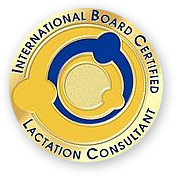A pacifier by any other name is a 'dummy' -- a fake.
Pacifiers don't have any milk. They are something to suck - an object to suck. A firm object that in the same category as hard candies, lollipops, popsicles, pens, spoons, and straws to name a few others. Generic, easily lost, easily replaced.
That's not you, not any one of them.
The biggest difference between you and a pacifier is milk. You may feel drained as your baby is lazily flutter sucking, not just pacifying but also getting everchanging droplets of milk. Milk specially designed for your baby's age and gender, full of antibodies, hormones, nutrients, probiotics and things that we don't even know exist. That, in itself, should encourage you to let your little one suckle.
Suckling is so important -- suckling relieves pain and anxiety!
In an adult, the need to suck is clinically, and jokingly, called an oral fixation. It's so pervasive that there are thousands of jokes and beliefs about it. It's a habit that is hard to break because it is not a habit. It is a need. Humans are born needing to suck. It's how we survive as infants. We eat and we soothe ourselves by suckling. If we suck our thumb or a pacifier or breastfeed until we wean ourselves, the need is integrated and we grow out of it. If we don't integrate this reflex, it lingers as an 'oral fixation.'
There are a hundred good reasons to let your baby suckle at your breast.
Hunger and thirst are obvious. But what about being too cold or hot? Overwhelmed by noise and lights? Bored because you are busy? Lonely, distressed, disturbed, tired and upset? Maybe you are stressed and your baby picks up on it? Your baby might be startled or scared or worried? Worried? Why would a baby be worried? Because he has asked to breastfeed and you haven't let him yet. That's an excellent reason to worry!
Even when you don't know why your baby is needing to nurse, breastfeeding your baby or child will solve a multitude of woes.
Intertwined with feeding is our need for attention. It is through communicating with other humans, especially our mother that we learn everything we need to know in the early years. Breastfeeding engages all five of the baby's senses at once. There is a constant interaction between mama and baby gazing at each other, talking and listening, touching and stroking. Every single interaction fires neurons in the brain and makes connections. This is one of the reasons breastfed babies have higher IQs.
What it really means.
In its primal way, your baby is saying, "Mama, I need you. I need you, the life giver, the one who nurtures me best. I need you to comfort me. I need you to help me through this time, until I feel good again. I need you to nurse me while I feel uncomfortable. Someday I will be able to tell you I'm sad, hungry, lonely, angry, hot, cold, lazy or that I just don't know what's wrong, but I can't do that yet.
"I need your milk. It's made just for me. I need your eyes looking into mine, to know that I am safe. I need to know that you are near. I need to hear your reassuring voice soothing me back into happiness. I need to taste your milk that leads me drip by drip into comfort and contentment. I need to feel your skin, your touch, your grounding presence bringing me back when I fly off into the unknown.
"Most of all, I just need to know that you are with me, human being to human being."
Why is pacifying at your breast so hard to do?
The challenge I see in my work with moms is that parents feel overwhelmed at the duration and intensity of all the caring that newborns require. It's easy to breastfeed for up to a point, but sometimes, babies ask endlessly. If you don't nurse them, they cry and a crying baby can cause you to feel all kinds of horrible feelings.
When you are upset, it is very hard for your baby to calm down. When you feel overwhelmed, you will try anything to stop your baby from crying. As a result, you rush through one thing after another trying to solve an unknown problem and upset the baby even more by overwhelming them with even more sensations and processes.
Learning to be still and present with an upset baby is partly instinctual but mostly it's a learned skill. The first step is to understand that humans usually only need to be listened to and comforted when they are upset. They don't always need a problem solved in order to return to happiness.
Back to pacifying. If suckling at your breast works, then use it.
What better way to teach your child to calm by connecting with other humans than by offering comfort and company of breastfeeding during the challenging time of life called infancy? Offering (or forcing) a baby to use a pacifier teaches them to look for comfort from objects, not humans. When you hold your baby and let them suckle, they learn empathy and compassion. They learn how to help others in times of suffering. Nature has something for you in return. You get a blast of oxytocin, the love hormone, and you calm down and return to your calmer, more generous self.
For what is the purpose of our ability to ask for help, if we can not connect with another in our darkest, most painful hours?
My love to you and your family....
Donna



